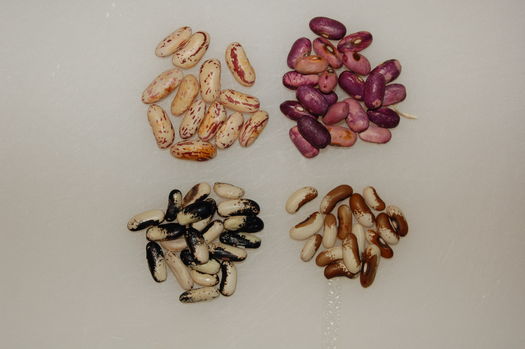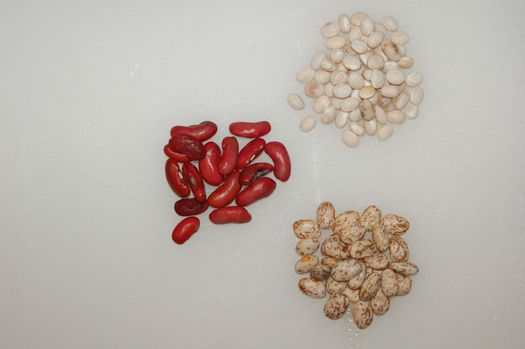Since today is election day in Holland, and there is not a lot growing in the garden, I thought I would write about something completely non-garden related — Dutch politics.
As I write this, the latest news is on the BBC website here:
http://news.bbc.co.uk/2/hi/europe/6170444.stm
Elections in many countries result in one winner, usually one person or one political party. In Holland, this is possible, but doesn’t usually happen. In Holland seats in parliament are won in the general election, with the most seats going to parties which get the most votes. 76 seats are needed to form a government, and unless one party gets this many seats outright different parties will have to come together to form a coalition government. Parties in the government nominate members for Prime Minister and other cabinet positions.
This election there are 24 different parties on the ballot. Here are a few of the more important ones:
Christian Democrats (CDA): Center right party, currently the largest party in the government coalition. This party is led by Jan Peter Balkenende, who is the current Dutch Prime Minister. This party is currently leading in the polls, and is expected to be the party that wins the majority of seats in the election. This party gets most of it’s votes from religious communities. PM Balkenende is himself a Calvinist-Protestant.
Liberals (VVD): This is liberal in the classic, European and economic sense, not in the North American sense. This party is center right to right, and could perhaps be compared with the US Republicans or UK Tories. It is a member of the current ruling government coalition. It’s most famous member is the current Immigration Minister Rita Verdonk also known as ‘Iron Rita’, because of her uncompromising stance on immigration issues. Minister Verdonk is behind the recent proposal to ban the wearing of a burka in Holland. A dispute between her and the D66 party (see below), triggered the collapse of the current government. This party gets most of it’s votes from the country’s wealthy. This party is not doing well in the polls, and rarely gets more than a few percent of the vote in any election anyway.
1966 Democrats (D66): Formed in 1966 from some of the most radical politicians of the time, this party has become very mainstream. It’s sometimes hard to tell if they are center left or center right, in fact it can often be hard to tell where they stand on anything. They promote themselves as being ‘honest’, and they triggered the collapse of the Dutch government a few months ago over it’s handling of the issues surrounding PM Ayaan Hirsi Ali. This affair led to her resigning from the Dutch government and moving to the US. Most votes for D66 come from people who are tired of all the other political parties, and want something different. They are not doing well now in the polls, and rarely get more than a few percent of the vote, but occasionally do very well. They are liked by many other parties, and frequently find their way into government coalitions.
Labor (PvdA): This is the largest and best known center left party. It is doing well in the polls, and is expected to get the second highest number of votes behind CDA. A few months ago it was doing so well in the polls, it seemed certain to be the clear winner in this election. In the last round of local elections, it was the clear winner in most places. It’s very possible it will score last minute gains in popularity, and come out as the largest party in the elections. Reportedly 40% of Dutch voters are still undecided. This party gets most of it’s votes from the working class. It has taken a lot of criticism in recent years for being too quick to forget its ideals and too willing to give up its stand on issues in the name of political expediency. For this reason they are losing a lot of votes to SP (below) because many voters think SP will stand firmer on their ideals.
Socialist Party (SP): This left party gets most of it’s votes from the unemployed or the lower classes. They also do better when the economy is not doing so well. As a party they can be unpredictable, so most other political parties don’t like working with them. They are rarely considered a serious political party, but sometimes get a lot of votes. The polls show them doing well this election, and it’s possible PvdA will try to form a government with them, possibly together with Groenlinks (see below).
Green Left (Groenlinks): This party was formed many years ago from a number of extreme left wing parties, but in recent years has become more center left. They get a lot of their votes from younger and/or more environmentally oriented people. They rarely do well in national elections, but sometimes do well in local elections. They are not doing particularly well in the polls, but may get a few seats. It’s possible they may emerge as a minority partner in a government coalition.
Okay, so these are the parties, what’s likely to happen in the election? Probably either CDA or PvdA will get the most seats. Whoever gets the most seats will try first to form a coalition, and if they fail the next largest will try. If no government can be formed, there will be another round of elections.
If CDA gets the most seats, it may have a hard time finding a coalition partner. PvdA was excluded from this last government because CDA didn’t want to work with them, so a coalition now between these two parties while perhaps the most logical thing, might not be so easy. It is certain the VVD will want to be a coalition partner, but it may not get very many votes. Since D66 triggered the collapse of the current government, they may not be a desirable coalition partner. It all comes down to exactly how many seats CDA actually gets.
If PvdA gets the most votes, it will probably prefer to form a coalition with CDA, which is why people are voting for SP instead of PvdA in order to try to prevent this coalition. PvdA may also be able to form a coalition between the various other left parties, because polls show most people will vote for a left or center left party, so there should be enough seats amongst these parties to form a government. PvdA will not want to form a government from a lot of splinter parties, because it may not be a stable government. Any sort of an all left coalition will almost certainly include SP, and PvdA does not like SP very much.



